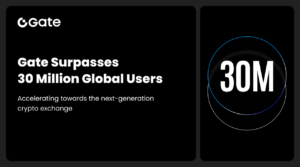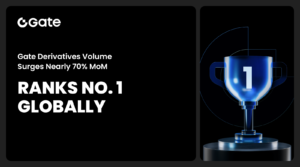Comparing Ethereum With Other Blockchain Platforms

Blockchain technology has brought significant changes to the way we conduct transactions and manage data. One of the most popular blockchain platforms is Ethereum, which has gained a massive following among developers and users since its launch in 2015. However, Ethereum is not the only blockchain platform in the market, and many other platforms offer unique features and benefits. In this article, we will compare Ethereum with other blockchain platforms and see how they differ in terms of technology, features, and use cases.
Ethereum vs. Bitcoin
Bitcoin is the first-ever blockchain platform that introduced the world to decentralized transactions. However, it is fundamentally different from Ethereum. Bitcoin was designed solely as a peer-to-peer electronic cash system, whereas Ethereum is a full-fledged platform that enables developers to build decentralized applications (dApps) on top of its blockchain. Ethereum also uses a more advanced scripting language, which allows for more complex transactions than Bitcoin’s limited scripting language. Furthermore, Ethereum has a faster transaction processing time than Bitcoin, which is crucial for real-world applications.
Ethereum vs. Ripple
Ripple is another blockchain platform that has gained traction in recent years. While Ripple and Ethereum share some similarities, they also have significant differences. Ripple focuses on enabling cross-border payments and transactions between different currencies, while Ethereum offers a more diverse range of use cases. Ethereum’s smart contract technology allows for the development of complex dApps, while Ripple’s blockchain is primarily used for financial services. Furthermore, Ripple’s consensus algorithm is different from Ethereum’s proof-of-work algorithm, which affects its scalability and security.
Ethereum vs. Hyperledger Fabric
Hyperledger Fabric is a blockchain platform that was designed for enterprise-level use cases. It is a private blockchain that enables multiple parties to share data and collaborate in a secure and transparent manner. Hyperledger Fabric offers better privacy and security than Ethereum since it allows for selective disclosure of data to specific participants. Furthermore, Hyperledger Fabric’s consensus algorithm is different from Ethereum’s, which makes it more suitable for enterprise-level use cases. However, Ethereum’s smart contract technology makes it more versatile and adaptable to different use cases, whereas Hyperledger Fabric is designed specifically for enterprise-level applications.
Ethereum vs. EOS
EOS is a blockchain platform that aims to address the scalability and transaction processing issues that plague Ethereum. EOS uses a delegated proof-of-stake consensus algorithm, which allows for faster transaction processing times than Ethereum’s proof-of-work algorithm. Furthermore, EOS has a more user-friendly development environment, which makes it easier for developers to create dApps. However, EOS’s consensus algorithm has been criticized for being centralized since only a few validators are responsible for validating transactions on the network. Ethereum, on the other hand, has a more decentralized consensus algorithm, which makes it more secure and resistant to attacks.
Ethereum vs. Cardano
Cardano is another blockchain platform that aims to offer better scalability and security than Ethereum. Cardano uses a proof-of-stake consensus algorithm, which is more energy-efficient and scalable than Ethereum’s proof-of-work algorithm. Furthermore, Cardano has a more advanced governance system, which allows for community-driven decision-making and ensures the network’s long-term sustainability. However, Cardano’s development environment is not as mature as Ethereum’s, which makes it harder for developers to create dApps. Ethereum’s well-established development community and smart contract technology give it a significant advantage over Cardano in this regard.
Conclusion
In conclusion, while Ethereum is a widely adopted and versatile blockchain platform, it is not the only option available in the market. Other platforms offer specific benefits and advantages that may make them more suitable for certain use cases. When selecting a blockchain platform, it is essential to consider the specific requirements of the application and evaluate each platform’s strengths and weaknesses carefully. The blockchain industry is rapidly evolving, and new platforms are emerging, which means that it is essential to stay up to date with the latest developments to make informed decisions.








